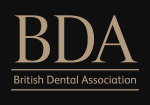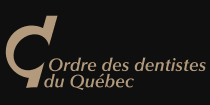
Treatments
Cleaning & Deep Cleaning
The right daily care routine and regular visits to a dental office for professional teeth cleanings are crucial elements of an effective prevention program.

About This Treatment
Real prevention is a cooperative effort between you and your dentist. At the Identity Clinic we take the time to educate our patients on how to keep good oral health.
A full prevention program includes regular dental exams, cleanings, and x-rays. When necessary, sealants and fluoride can also be effective prevention aids that help protect and preserve the teeth.
At your cleaning appointment, we will visually examine your teeth to identify any signs of disease. The cleaning will target the spaces between the teeth and gum line. Each tooth will be cleaned using special instruments and a cleaning agent to remove all bacteria, plaque, and tartar. The dentist will also polish the surface of the tooth during this appointment. We will discuss how to improve your oral hygiene with routine brushing and flossing based on the cleaning. Dental x-rays may also be taken following the cleaning to provide more detailed information about the health of the tooth roots and jaw bones.
Periodontal cleanings: Gum Disease and Gum therapy
Periodontal cleanings are the type of cleanings needed if a patient shows gum disease, gingivitis or dental bone loss.
What is Gum Disease and how is it treated?
Gum disease or periodontal disease can initiate the breakdown of the bone around the teeth, the gums to recede and the tooth roots to become exposed.
This makes teeth more susceptible to damage and decay.
Untreated gum disease or gum recession can make you at risk for:
- Tooth loss
- Root decay
- Sensitivity
- Loose teeth
Gum disease is caused by the build-up of unwanted bacteria around the teeth. This build-up is called plaque. In the event of poor oral hygiene, plaque accumulates and the amount of unwanted bacteria found in that plaque can lead to a variety of gum issues, including bad breath, gum damage, inflammation and loss of the bone surrounding the teeth and giving it support.
Over time, this can cause the gums to pull away from the teeth, form extra spaces between the teeth and the gums which are called periodontal pockets. These pockets will trap plaque and bacteria over time. When the bacteria accumulates deep in the pockets, it becomes impossible to remove it with normal brushing. This is when deep cleaning is needed. If left untreated, gum disease can lead to bone and tooth loss. Early detection of gum disease is therefore vital to limit the damage and bacteria build-up from beneath the gumline.
How is gum disease treated? By deep cleaning or what dentists call periodontal treatment. A Periodontal cleaning is done by scaling and root planing.
- Scaling is the process of removing the plaque and tartar from both above and below the gumline – all the way down to the bottom of the pocket. Periodontal pockets are the spaces surrounding the teeth and located under the gums.These pockets can become filled with bacteria.
- Root Planing is done after scaling, by smoothing out the roots’ surface of teeth in order to help gums reattach to the teeth.
Root planing and scaling is generally performed using local anesthesia to reduce discomfort. Special manual instruments, called scalers, are used to reach below the gums to remove the bacteria, plaque, and tartar (calculus) to restore the health of the gum tissues and teeth. Once the cleaning is complete and the debris has been removed, a special antibiotic can be placed to treat the areas that are more difficult to reach and to protect them against further progression of the disease.
Here are the different Types of Periodontal Treatments:
- Deep Cleaning
If you have the early signs of gum disease, such as gingivitis, then our specialist periodontist will begin by cleaning your teeth thoroughly. This process is known as scaling and root planing and begins with a deep clean using gritty toothpaste and specialist instruments called scalers. This will remove bacteria and tartar (calculus) from below the gum line. Extensive scaling may be required if gingivitis has developed into periodontitis. You may need a local anaesthetic injected into your gums to block the feeling, although you will remain conscious during the treatment.
- Periodontal Gum Surgery
In the case where your gum disease is severe, the gum tissue may require more extensive repair work. - Antibiotics and Other Medications
Medications may be prescribed in conjunction with a deep cleaning treatment. Antibiotics, alone, are not considered an effective way of treating periodontitis but are still used in severe cases of gum disease. In some instances, medications may be administered to reduce the need for surgery over a longer period of time. - Medicated Mouthwash
Our specialist periodontist may recommend using an antiseptic mouthwash to incorporate into your daily routine to ensure the healing of inflamed gums.
Dr. Germain is the only dentist I’d see in London. She is incredibly proficient and efficient in her treatment and can so easily explain her work to the patient’s understanding. Have gone in for a routine check up and received an immaculate repair in the same amount of time. Not just an amazing dentist but a beautifully kind human being as well.
- How is Periodontal Disease Treated?
At Identity Clinic, gum disease treatment is carried out by our specialist periodontist who is qualified in the treatment and care of conditions such as periodontal disease ( gum disease). He will perform a detailed assessment and a plan to address your periodontal disease.
The next step is to discuss the process of how to cure your gum disease effectively. If caught in the early stages, the treatment will involve a procedure called scaling and root planing. This requires a method of removing the plaque and calculus from around the teeth to decrease the pockets /spaces that have developed around them. A deep clean and smoothing of the root surface follows. This simple course will help aid the teeth back to health.
However, more advanced cases require a more detailed treatment. This can involve surgical treatment and/or medication depending on what is deemed the best course in how to treat the gum disease.- How do I know I have gum disease?
If your gums bleed when you brush or floss; or you feel some soreness,
you then might have a periodontal disease.
Periodontal disease is often undiagnosed because it is not painful. Yet it affects millions of people. It can have serious consequences such as tooth loss or gum recessions.











